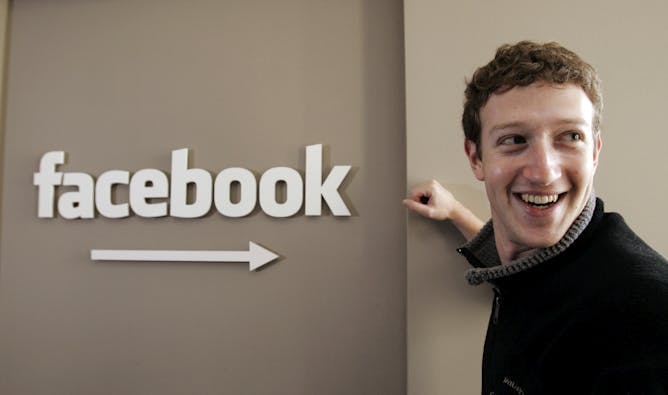Editor's note
|
|
The startup world shows a clear bias for younger founders. But founders over 30 tend to be more successful, according to a new study that looks at all businesses launched in the U.S. between 2007 and 2014. The average American entrepreneur is 45 years old – a far cry from the stereotypical college dropout in a hoodie.
“Impact” is a research buzzword these days. But too often scientists’ data and results don’t reach the people who could really use them. Environmental scientist Anne Toomey surveyed all the researchers who worked in one Bolivian national park over more than a decade to see who shared what with whom once the fieldwork was done. Foreign and Bolivian researchers had different approaches – but everyone could do better at getting the word out.
And as Karl Marx turns 200, literary radicalism scholar Barbara Foley of Rutgers University, Newark asks how relevant Marx’s writings are to the world’s struggles with inequality today.
|
Aviva Rutkin
Big Data + Applied Mathematics Editor
|

|
|
Top stories
|

Many associate entrepreneurship with youth – like Mark Zuckerberg, who famously started Facebook as a student at Harvard.
AP Photo/Paul Sakuma, File
Benjamin F. Jones, Northwestern University; J. Daniel Kim, Massachusetts Institute of Technology
Most people think of entrepreneurship as a young person's game. But the highest-growth firms in the US come from entrepreneurs who are 45 years old.
|

Park guards view maps and photos of high-altitude glaciers – information that can be shared with local communities dealing with changing water levels.
Anne Toomey
Anne Toomey, Pace University
Science can't just stay in the ivory tower. But what does impact really mean and how does it happen? A study of more than a decade of ecological fieldwork projects in Bolivia suggests a better way.
|

Karl Marx Monument in Chemnitz, in eastern Germany.
AP Photo/Jens Meyer
Barbara Foley, Rutgers University Newark
A scholar of literary radicalism asks whether Marx's writings are at all relevant to the world's struggles with inequality today and why he's no longer being relegated to the dustbin of history.
|
|
|
|
|
|
|
|
|
|
|
|
|
|
|
Trending on site
|
-
Sandeep Nair Narayanan, University of Maryland, Baltimore County; Anupam Joshi, University of Maryland, Baltimore County; Sudip Mittal, University of Maryland, Baltimore County
Here's how to secure your home network, whether or not it has already been attacked by hackers.
-
Amitrajeet A. Batabyal, Rochester Institute of Technology
If companies in key industries collectively shunned the Chinese market, that would force China's leaders to take notice, with less risk of blowback.
-
Donald Scavia, University of Michigan
Scientists have mapped a huge dead zone in the Gulf of Oman, without enough oxygen in the water to support life. This Speed Read explains why dead zones form in waters around the world.
|
|
Today’s chart
|
-

 |
Richard E. Peltier
University of Massachusetts Amherst
|
| |
| |
| |
|
|